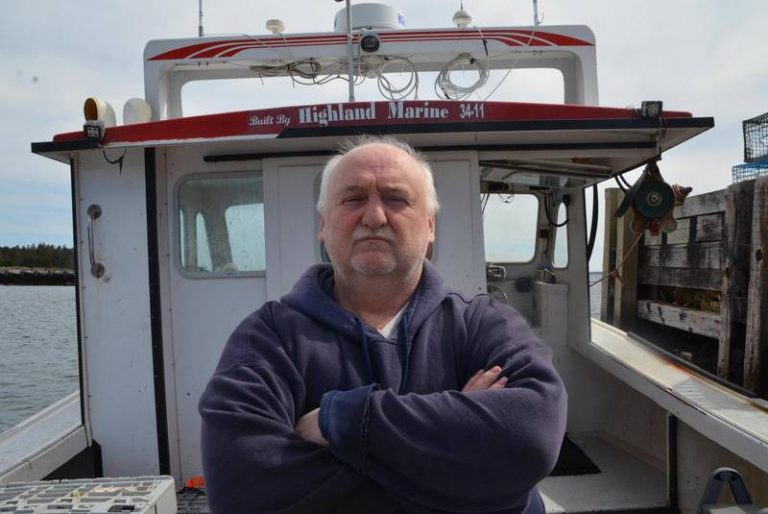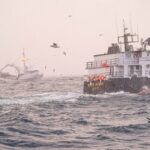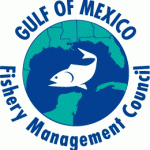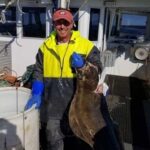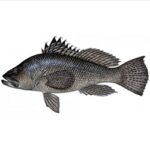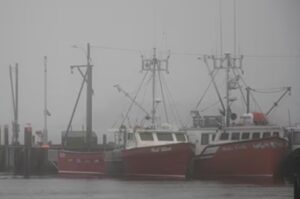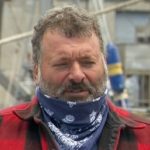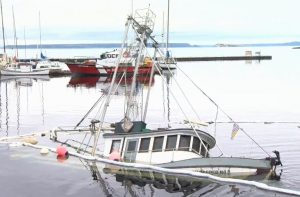Daily Archives: April 23, 2015
Jeff Davis confirms deal for scallop fishing firm Peabody Fisheries
 Jeff Davis and private equity Bregal Partners have inked a deal for US scallop fishing firm Peabody. Davis confirmed the deal closed on Thursday. On Feb. 12, Undercurrent reported the deal was in the works. He will become CEO of the new company, which will be named Blue Harvest Fisheries. Peabody, based in Newport News, Virginia, has a fleet of eight scallop vessels. Sources told Undercurrent the purchase price was in the region of $40 million. Davis declined to comment on this. Read the rest here 21:20
Jeff Davis and private equity Bregal Partners have inked a deal for US scallop fishing firm Peabody. Davis confirmed the deal closed on Thursday. On Feb. 12, Undercurrent reported the deal was in the works. He will become CEO of the new company, which will be named Blue Harvest Fisheries. Peabody, based in Newport News, Virginia, has a fleet of eight scallop vessels. Sources told Undercurrent the purchase price was in the region of $40 million. Davis declined to comment on this. Read the rest here 21:20
NEFMC Approve Some Habitat Changes – blocks no-fishing zone for scientific research on Stellwagen Bank
Federal fishery regulators say they will keep much-debated protections for Cashes Ledge in the 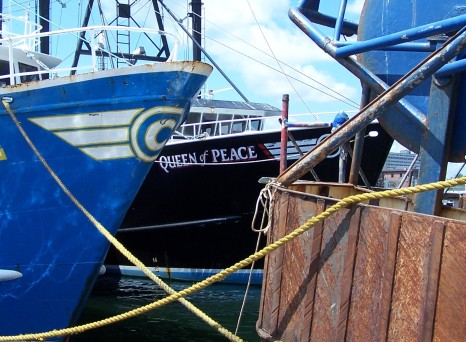 in place as part of a broad effort to alter the scope of New England’s fishing grounds. Peter Baker, director of northeast U.S. Oceans for Pew Charitable Trusts, said that with the recent approvals, the council remains “on a course to eliminate thousands of square miles of important fish habitat areas” in favor of commercial fishing concerns. He said the council has ignored conservationists’ (shrugs shoulders),,, Read the rest here 20:48
in place as part of a broad effort to alter the scope of New England’s fishing grounds. Peter Baker, director of northeast U.S. Oceans for Pew Charitable Trusts, said that with the recent approvals, the council remains “on a course to eliminate thousands of square miles of important fish habitat areas” in favor of commercial fishing concerns. He said the council has ignored conservationists’ (shrugs shoulders),,, Read the rest here 20:48
Maine Lobsterman Faces Suspension for Illegal Use of Traps
 A Maine lobsterman faces possible fines and a license suspension after state authorities charged him with lobster harvesting violations. The Maine Marine Patrol is charging Benjamin Weed, of Stonington, Maine, with fishing with untagged lobster traps, fishing more than 49 percent of his allotted traps in a limited entry zone and fishing 287 traps without tags declaring the zones he was licensed to fish. He also faces three violations of regulations designed to protect whales. Read the rest here 16:59
A Maine lobsterman faces possible fines and a license suspension after state authorities charged him with lobster harvesting violations. The Maine Marine Patrol is charging Benjamin Weed, of Stonington, Maine, with fishing with untagged lobster traps, fishing more than 49 percent of his allotted traps in a limited entry zone and fishing 287 traps without tags declaring the zones he was licensed to fish. He also faces three violations of regulations designed to protect whales. Read the rest here 16:59
NEFMC Votes to Keep Cashes Ledge Closed
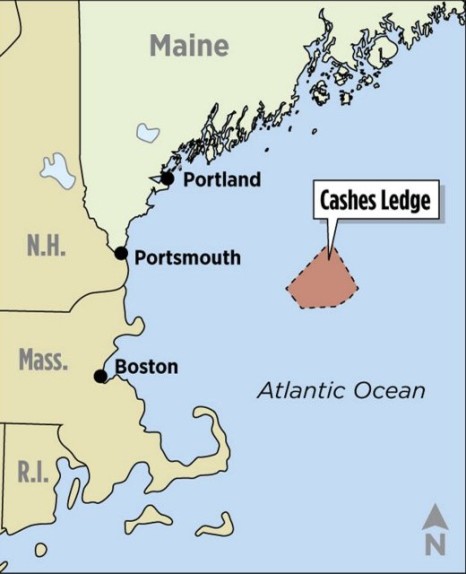 Federal fishery regulators are keeping protections of Cashes Ledge in the Gulf of Maine as part of a broad effort to alter the scope of New England’s fishing grounds. The ledge is an underwater mountain and offshore ecosystem mostly closed to fishing that environmentalists have ardently opposed reopening. The New England Fishery Management Council says its protections will stay. The council is meeting Thursday to approve a long-awaited plan for federal waters from Maine to Rhode Island. Read the rest here 16:03
Federal fishery regulators are keeping protections of Cashes Ledge in the Gulf of Maine as part of a broad effort to alter the scope of New England’s fishing grounds. The ledge is an underwater mountain and offshore ecosystem mostly closed to fishing that environmentalists have ardently opposed reopening. The New England Fishery Management Council says its protections will stay. The council is meeting Thursday to approve a long-awaited plan for federal waters from Maine to Rhode Island. Read the rest here 16:03
New Bedford Mayor Jon Mitchell makes fishing industry’s case in habitat closures
 New Bedford Mayor Jon Mitchell spoke this morning to the New England Regional Fishery Council, pleading the case for a compromise solution to protective essential habitat closures on Georges Bank. In particular, he argued in favor of opening up part of an area known as the Northern Edge, parts of which have been closed 20 years and now are “the mother lode of scallops.” Mitchell brought with him a petition signed by 380 people involved in the fishing industry, mostly shore-side, who see the Northern Edge and other proposals as a needed boost for the fishing industry’s future. Read the rest here 14:55
New Bedford Mayor Jon Mitchell spoke this morning to the New England Regional Fishery Council, pleading the case for a compromise solution to protective essential habitat closures on Georges Bank. In particular, he argued in favor of opening up part of an area known as the Northern Edge, parts of which have been closed 20 years and now are “the mother lode of scallops.” Mitchell brought with him a petition signed by 380 people involved in the fishing industry, mostly shore-side, who see the Northern Edge and other proposals as a needed boost for the fishing industry’s future. Read the rest here 14:55
How oil damages fish hearts: Five years of research since the Deepwater Horizon oil spill
 Scientists with the Ecotoxicology Program at NOAA’s Northwest Fisheries Science Center in Seattle have been working to understand those effects. “Along with our research partners,” said Nat Scholz, the scientist who leads the program, “we’re investigating the more subtle, lingering, and potentially widespread impacts of oil on the health and survival of fish.” Read the rest here 14:19
Scientists with the Ecotoxicology Program at NOAA’s Northwest Fisheries Science Center in Seattle have been working to understand those effects. “Along with our research partners,” said Nat Scholz, the scientist who leads the program, “we’re investigating the more subtle, lingering, and potentially widespread impacts of oil on the health and survival of fish.” Read the rest here 14:19
Alaskan Coastal legislators support halibut bycatch cuts
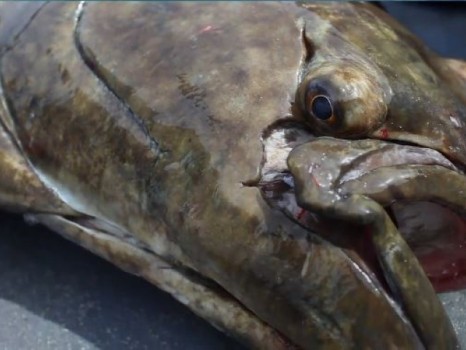 The Alaska legislature’s coastal representatives sent a letter to the North Pacific Fishery Management Council expressing support for 50 percent halibut bycatch cap reductions for the groundfish fleet in the Bering Sea and Aleutian Islands. “Over the past decade,” the legislators wrote, “more than 62 million pounds of halibut has been caught, killed, and discarded as bycatch in the Bering Sea/Aleutian Islands. During the same period, landings of halibut as the target species have declined from an already alarmingly small 52 percent,,, Read the rest here 11:27
The Alaska legislature’s coastal representatives sent a letter to the North Pacific Fishery Management Council expressing support for 50 percent halibut bycatch cap reductions for the groundfish fleet in the Bering Sea and Aleutian Islands. “Over the past decade,” the legislators wrote, “more than 62 million pounds of halibut has been caught, killed, and discarded as bycatch in the Bering Sea/Aleutian Islands. During the same period, landings of halibut as the target species have declined from an already alarmingly small 52 percent,,, Read the rest here 11:27
Maine lobster industry – Long winter boosts lobster prices
The unusually cold winter may finally be over, but the 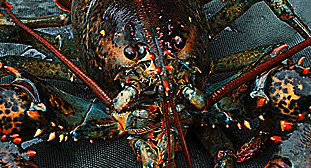 is still feeling its effects. The current wholesale market price of lobster is up to an average of $9 a pound, even higher in some places. Those high prices could last into the midsummer season before soft shell lobsters hit the menu. “The water temperature right now is 38, last year at this time it was around 42, 43. So we’re behind in the temperature. We might make it up if the spring gets a lot warmer, we might get caught up,” said sale manager of Beal’s Lobster Pier in Southwest Harbor, Rob Bauer. Read the rest here
is still feeling its effects. The current wholesale market price of lobster is up to an average of $9 a pound, even higher in some places. Those high prices could last into the midsummer season before soft shell lobsters hit the menu. “The water temperature right now is 38, last year at this time it was around 42, 43. So we’re behind in the temperature. We might make it up if the spring gets a lot warmer, we might get caught up,” said sale manager of Beal’s Lobster Pier in Southwest Harbor, Rob Bauer. Read the rest here
Another View: Sardine population isn’t crashing by D.B. Pleschner
 Environmental groups such as Oceana complain that the sardine population is collapsing just as it did in the mid-1940s. They blame “overfishing” as the reason and maintain that the fishery should be shut down completely (“Starving sea lions spotlight overfishing,” Viewpoints, April 14). In truth, Pacific sardines are perhaps the best-managed fishery in the world. The current rule – established in 2000 and updated last year with more accurate science – sets a strict harvest guideline. Read the rest here 10:25
Environmental groups such as Oceana complain that the sardine population is collapsing just as it did in the mid-1940s. They blame “overfishing” as the reason and maintain that the fishery should be shut down completely (“Starving sea lions spotlight overfishing,” Viewpoints, April 14). In truth, Pacific sardines are perhaps the best-managed fishery in the world. The current rule – established in 2000 and updated last year with more accurate science – sets a strict harvest guideline. Read the rest here 10:25
Gail Shea’s stance on shrimp allocations may be softening – Province delivers shrimp impact report to feds
 The shrimp fishery in this province is basically divided into a large factory freezer fleet in the offshore, and the smaller vessel fleet in the inshore. Under the last in, first out (LIFO) policy, the inshore is forced to contend with the bulk of any quota reductions that come about. In 2014, the LIFO policy resulted in the inshore losing more than 30 per cent of its shrimp, while the offshore fleets lost less than five per cent. The province’s report states that current sharing arrangement, if continued, would prove disastrous for many rural regions. Read the rest here 09:59
The shrimp fishery in this province is basically divided into a large factory freezer fleet in the offshore, and the smaller vessel fleet in the inshore. Under the last in, first out (LIFO) policy, the inshore is forced to contend with the bulk of any quota reductions that come about. In 2014, the LIFO policy resulted in the inshore losing more than 30 per cent of its shrimp, while the offshore fleets lost less than five per cent. The province’s report states that current sharing arrangement, if continued, would prove disastrous for many rural regions. Read the rest here 09:59
New England Fishery Management Council expected to vote on opening scallop grounds
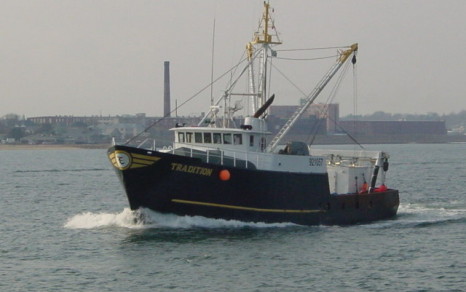 The New England Fishery Management Council on Thursday will take up the subject of opening parts of Georges Bank to scallop fishing, in some cases after closures of 20 years that led to an untapped abundance of scallops, according to surveys. Wednesday’s meeting of the council, day two of three, offered a preview of how the council, and by extension NOAA Fisheries, intends to proceed. “Don’t be bullied” by the environmentalists, Maggie Raymond of the Associated Fisheries of Maine urged the 17-member council. Read the rest here 09:22
The New England Fishery Management Council on Thursday will take up the subject of opening parts of Georges Bank to scallop fishing, in some cases after closures of 20 years that led to an untapped abundance of scallops, according to surveys. Wednesday’s meeting of the council, day two of three, offered a preview of how the council, and by extension NOAA Fisheries, intends to proceed. “Don’t be bullied” by the environmentalists, Maggie Raymond of the Associated Fisheries of Maine urged the 17-member council. Read the rest here 09:22
Mainer Mary Beth Nickell-Tooley’s vote disallowed on NEFMC, What about John Pappalardo’s?
 Mary Beth Nickell-Tooley, an at-large member from Maine since 2008, was informed Wednesday by NOAA Attorney Adviser Mitch MacDonald she “may not vote during the Council’s final deliberations on Habitat Amendment alternatives that open or close areas to fishing nor on the final vote to approve the Habitat Amendment for submission to NMFS.” Nickell-Tooley’s recusal served as a backdrop for another inquiry from , who operates the Saving Seafood website, whether council member John Pappalardo should have received a similar order for recusal. Read the rest here 08:45
Mary Beth Nickell-Tooley, an at-large member from Maine since 2008, was informed Wednesday by NOAA Attorney Adviser Mitch MacDonald she “may not vote during the Council’s final deliberations on Habitat Amendment alternatives that open or close areas to fishing nor on the final vote to approve the Habitat Amendment for submission to NMFS.” Nickell-Tooley’s recusal served as a backdrop for another inquiry from , who operates the Saving Seafood website, whether council member John Pappalardo should have received a similar order for recusal. Read the rest here 08:45
I want to be a commercial fisherman. What will my salary be?
 Though many Canadians enjoy sport fishing, only a select few licensed and trained fisherman, operating in a limited number of regions across Canada, make a living from their catch. For such professionals, there are only a few seasonal windows when they are permitted to fish for certain species in certain locations, ranging from a few months to as little as a few days a year. As such, fishermen spend much of the off-season ensuring that they’re prepared for anything when that window opens. Read he rest here 07:40
Though many Canadians enjoy sport fishing, only a select few licensed and trained fisherman, operating in a limited number of regions across Canada, make a living from their catch. For such professionals, there are only a few seasonal windows when they are permitted to fish for certain species in certain locations, ranging from a few months to as little as a few days a year. As such, fishermen spend much of the off-season ensuring that they’re prepared for anything when that window opens. Read he rest here 07:40

































